Home » Laws & Taxes » A Guide to Calculating Your Zakat for 2023
IN THIS POST:
– Eligibility of Zakat as per the Nisab
– How to Calculate the Nisab
– Assets to be Included
– Liabilities to Exclude
– How to Calculate Your Zakat
– Recipients of Zakat
– Deduction of Zakat in Banks
– Questions Related to Zakat
Zakat is one of the five pillars of Islam and needs to be given once within every Islamic year (also known as the lunar year). This means that you need to mark one date every year on which you will calculate your Zakat with respect to all the assets you have amassed over the year. It is common for many Muslims to mark the start of Ramadan as the time to calculate and give Zakat.
However, in order to calculate your Zakat, you need to first determine whether you are Sahib-e-Nisab. In other words, Zakat is only obligatory on those Muslims who have more than a set threshold of savings and assets. Once you determine whether you are eligible to pay Zakat, you can calculate it accordingly.
Am I Eligible to Pay Zakat as per the Nisab?
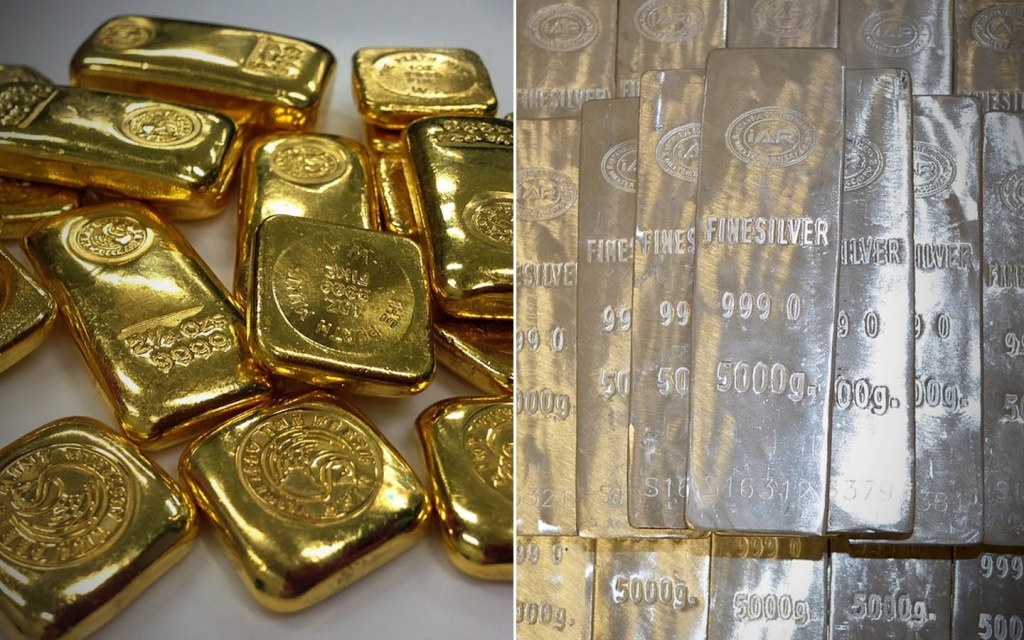
You are Sahib-e-Nisab and eligible to pay Zakat if the total of your assets values more than 7.5 tola/3 ounces/87.48 grams of gold, or 52.5 tola/21 ounces/612.36 grams of silver for a full lunar year. Since gold and silver are not used as currency in today’s world, it is important to convert the Nisab into your local currency based on the current rate of either gold or silver on the day of calculation.
Please note that we’ll be using Pakistani Rupees (PKR) as the default currency in our examples, to show you how to calculate Zakat in Pakistan, but all the rates and currency values will differ based on when and where you are calculating your Zakat.
Example
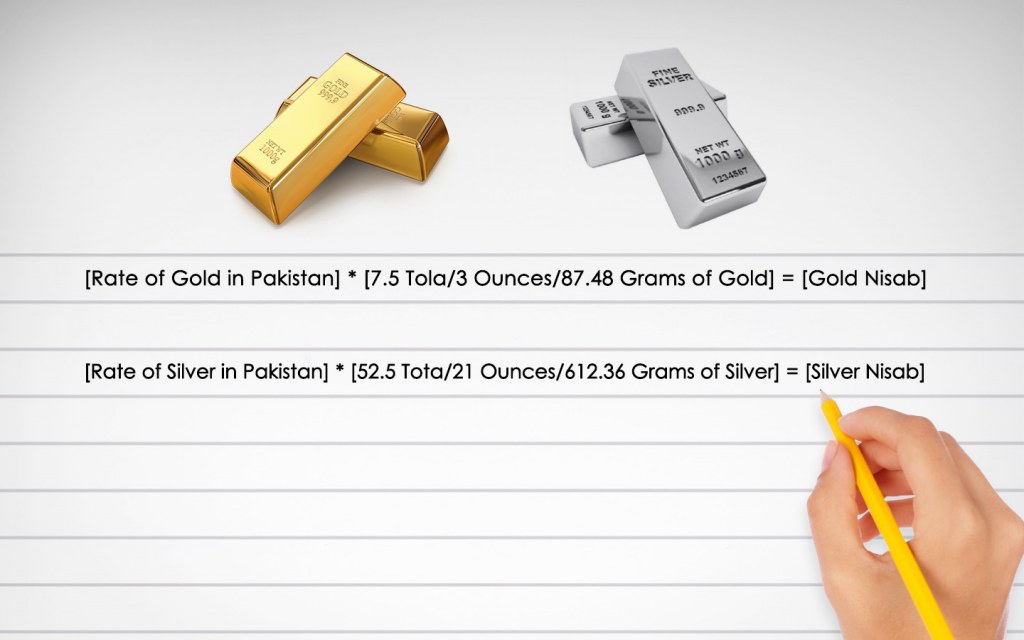
Assuming that you are calculating your zakat on a day when the rate of gold in Pakistan is PKR 133,300 per tola. Thus:
PKR 133,300 * 7.5 tola = PKR 999,750 [Nine lakh, ninety-nine thousand, seven hundred and fifty rupees]
On the other hand, if you are using silver to calculate the Nisab, and assuming that the rate of silver in Pakistan for that day is PKR 1,749 per tola, the total would be:
PKR 1,749* 52.5 tola = PKR 91,823 [Ninety-one thousand, eight hundred and twenty-three rupees]
Explanation
This means that if you calculate your Zakat with the gold Nisab and have more than PKR 999,750 as the worth of your savings and assets for a full lunar year, you are eligible to pay Zakat on them. Meanwhile, you will have to pay Zakat on assets and savings kept for a full lunar year if they are in excess of PKR 91,823 based on the silver Nisab.
The important thing to note here is that your net worth must be over the Nisab for a full lunar year. If your assets drop below PKR 91,823 (for instance) during the lunar year, then your lunar year will restart when you are above the Nisab again, and the restarting date on the Islamic calendar should essentially be the day for calculating Zakat after a year has passed. In contrast, if you are Sahib-e-Nisab all year round, it is up to you to decide one day in the year to calculate your wealth, but as mentioned above, many people choose the month of Ramadan for this charitable act.
You can check out the latest gold rate in Pakistan here.
Which Nisab Should You Choose—Gold or Silver?
Now the question is—which Nisab should you choose? While the silver Nisab is considered Afzal or more rewarding, both for the giver and the recipient, as more Zakat is given due to the lower threshold, there is a way to determine which Nisab to use.
Generally, if you only have assets and savings in gold, that is the Nisab you should use. However, if you have savings and assets in silver or mixed assets, including cash, gold, silver, and other tradable commodities, it is ideal to use the silver Nisab.
Please note that different religious sects may differ in their opinions with regard to which Nisab you should follow, and if you are in doubt, it is best to ask an Aalim-e-Deen for advice.
Calculating Zakat for 2023
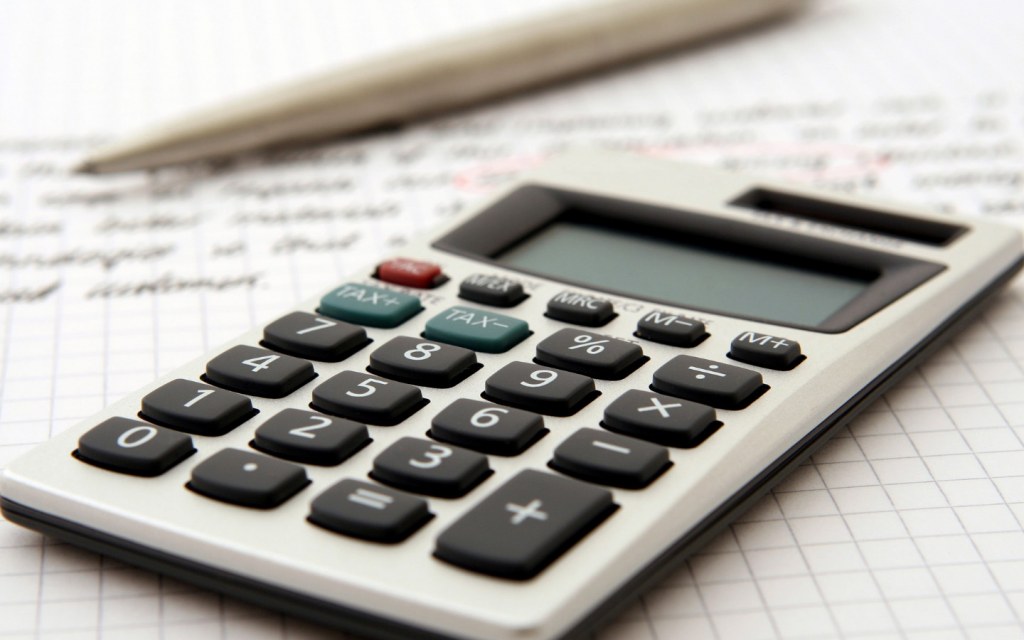
So, you’ve calculated the Nisab and found out that you’re eligible to pay Zakat for 2023. Well, while there are a number of Zakat calculators available online, most of them will not show you how they’ve actually calculated Zakat for a particular year. In contrast, we’ll take you through a step-by-step process to help you understand how to calculate Zakat on gold and all your other assets for one lunar year.
Firstly, remember that Zakat is applicable to savings and assets that are in excess of your belongings for personal use. Therefore, your house, your clothes, your car, your appliances, and other items of daily use are not included in the calculations for Zakat.
Assets to be Included
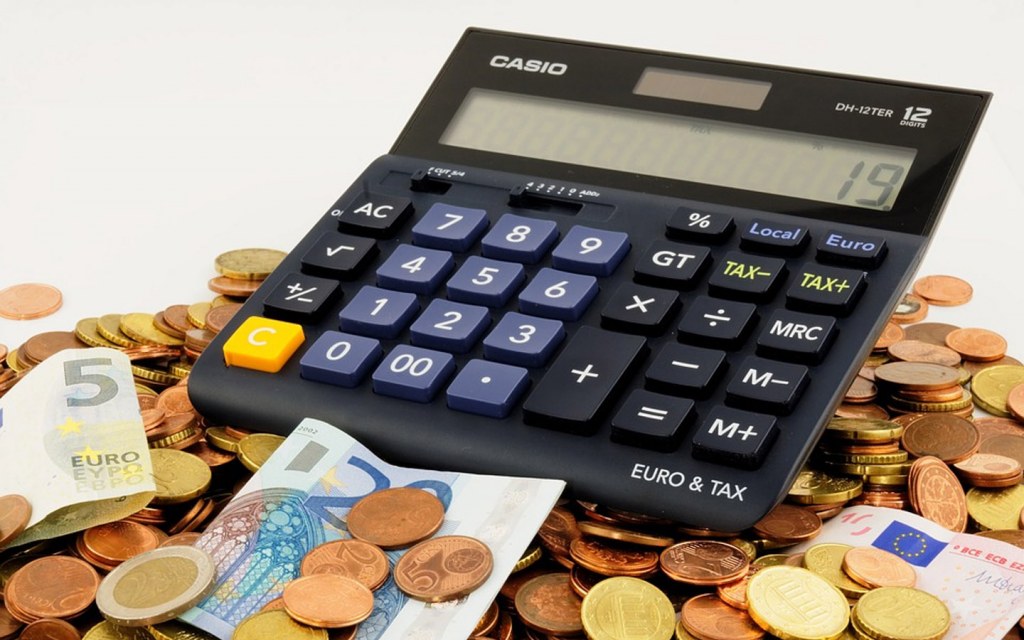
The savings or assets that you must consider include:
- Cash, whether it’s at home or in the bank
- Foreign currency that you own (valued at the conversion rate of the local currency)
- Savings that are set aside for a specific purpose, such as Hajj, marriage, buying a car, etc.
- The value of all the gold and silver that you own in your local currency
- The market price value of any shares that you might own if you wish to sell them
- The dividend received from shares if you are not selling them in the near future
- Money that is owed to you and will be repaid in the near future
- Business owners should also include the balance sheet value of the stocks that they own
- Rental property owners should tabulate any saved rental income as well
- If a property is bought as an investment to be sold, then its market value is to be included
- Anticipated profit on the sale of an investment asset in the near future
Liabilities to Exclude
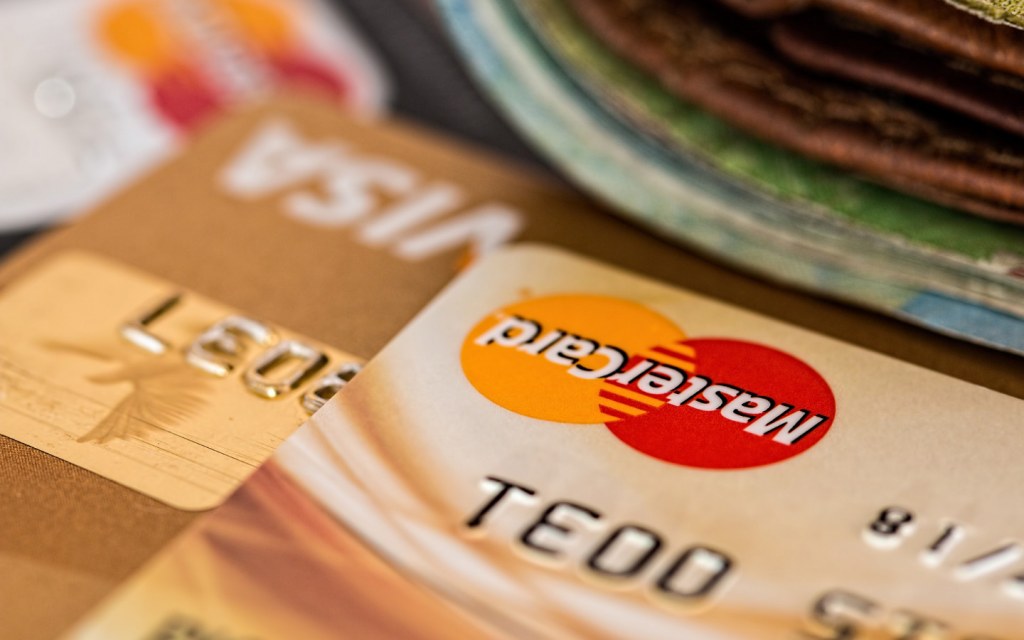
Following liabilities should not be included in your Zakat calculations:
- The total amount of pending utility as well as credit card bills
- Any pending amount of rent you owe to your landlord
- The outstanding amount on any personal loans or mortgages that you have taken
- The value of a property that you’ve given on rent to your tenant
- Any amount that is due to your employees as their salary
Sample Calculation for Assets and Liabilities
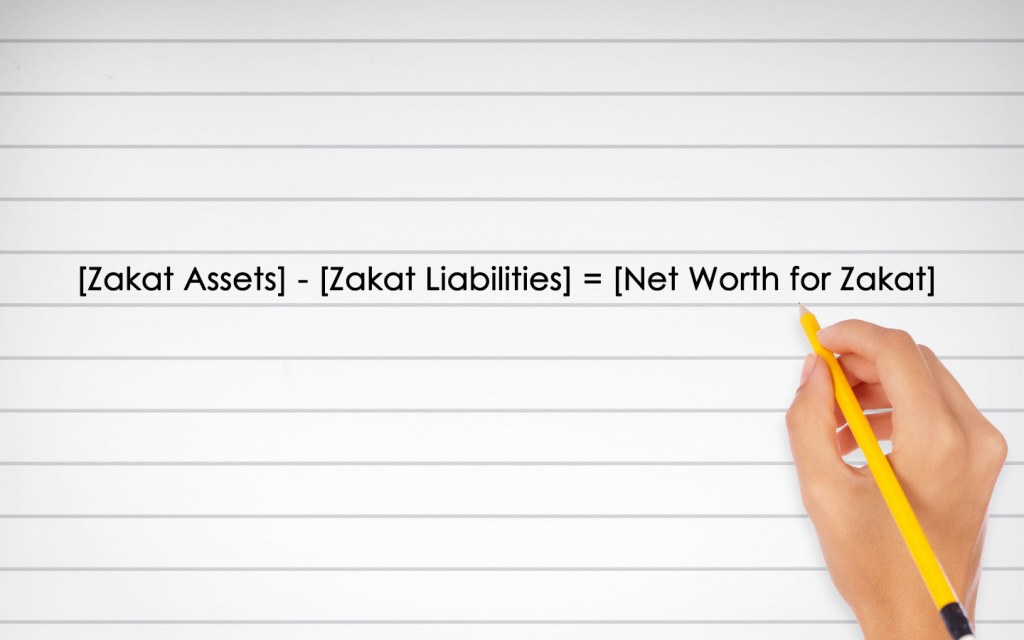
Keeping the above criteria for assets and liabilities in mind, let’s assume that you have PKR 300,000 in cash, PKR 350,000 in gold and silver jewellery and PKR 250,000 in foreign currency (value converted into Pakistani rupees at the market rate, on the day of Zakat calculation).
Thus, you have:
PKR 300,000 + PKR 350,000 + PKR 250,000 = PKR 900,000 [Total Assets for a Full Lunar Year]
Once, you have calculated your assets, you can tabulate the total worth of your liabilities. Assuming that you have to pay PKR 12,000 for pending utility bills and a rent of PKR 38,000 that is yet to be paid to your landlord, the total liabilities would be:
PKR 38,000 + PKR 12,000 = PKR 50,000 [Immediate Liabilities to Exclude From Your Total Assets]
As a result, your Zakat net worth is:
PKR 900,000 – PKR 50,000 = PKR 850,000 [Net Worth for Zakat]
Due to the presence of mixed assets, we will consider the silver Nisab, which makes you eligible to pay Zakat.
The Rate of Zakat
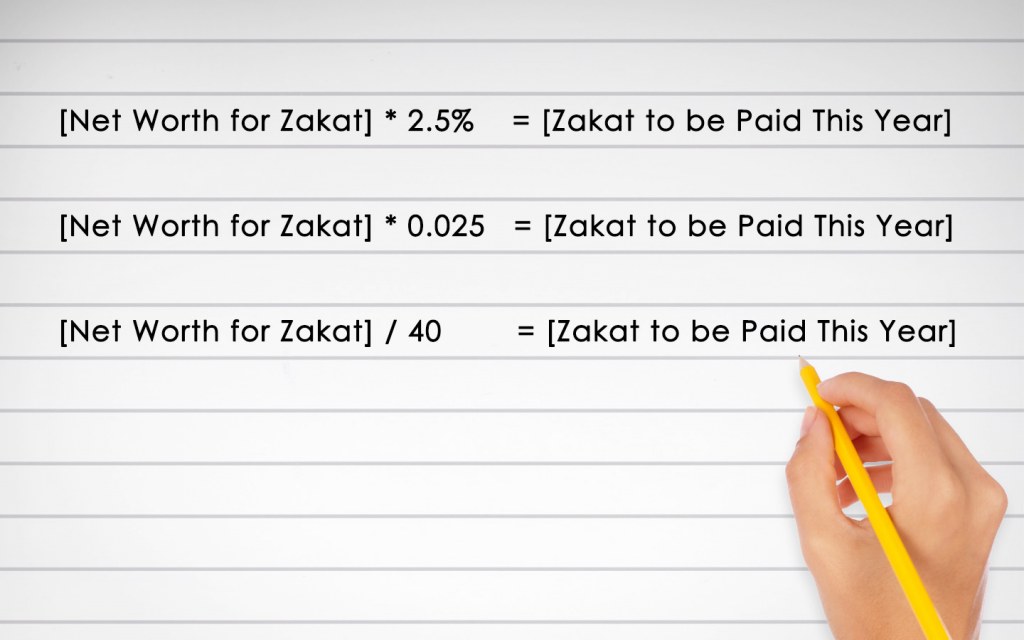
The rate of Zakat applicable is 2.5% or the 40th portion of your accumulated wealth for one lunar year. Thus, we will multiply the net worth that we’ve just calculated with this rate:
PKR 850,000 * 2.5% = PKR 21,250 [Zakat to be Paid This Year]
Alternatively, you can multiply the calculated net worth by 0.025. Both ways will give you the same results:
PKR 850,000 * 0.025 = PKR 21,250 [Zakat to be Paid This Year]
A third alternative is to divide the calculated net worth of assets by 40 because Zakat is applicable to the 40th portion of our wealth.
PKR 850,000/40 = PKR 21,250 [Zakat to be Paid This Year]
It is important to remember that the rate of Zakat is the minimum amount of Zakat that every Sahib-e-Nisab Muslim is obligated to pay. There is no maximum threshold though, and you do have the choice of giving more Zakat on gold and other assets than is obligatory if you wish to help the needy Muslims in your surroundings.
How is Zakat to Be Distributed?
Now that you know how you can calculate your Zakat, let’s discuss the distribution process:
The calculated amount of Zakat can be paid immediately in one single transaction, or you can choose to pay it in instalments throughout the year until the next lunar year begins. However, Zakat can only be given to people who fall into one of the eight categories mentioned in the Quran.
Masarif-e-Zakat (Recipients of Zakat)

The following eight categories of people are specified in the Quran as the rightful recipients of Zakat:
- Fuqaraa [poor and low-income individuals]
- Masakeen [needy Muslims who lack even the most basic facilities]
- Aamileen [officials appointed by an Islamic State for the collection of Zakat]
- Muallafat-ul-Quloob [new underprivileged Muslims to incline their hearts towards Islam even more]
- Ar-Riqaab [slaves and captives, to set them free from their masters]
- Al-Gharimeen [Muslims who are in debt]
- Fi Sabeelillah [needy Muslims who are away from home to perform good deeds, like Hajj or Jihaad]
- Ibn-us-Sabeel [a traveller who is needy for the duration of the journey]
Exceptions to the Above
Zakat can only be given to individuals that fall into one of the eight categories mentioned above, but there are some considerations to keep in mind in this regard. Firstly, Zakat must be given to someone whom you can make an owner of the amount. It is important that the recipient is in possession of the Zakat. Thus, it cannot be given to an organisation that does not give full ownership of Zakat to the needy.
Similarly, it cannot be used for the funeral of a deceased individual or to clear their debts as they cannot be made an owner of the amount anymore. It can also not be used to buy supplies or property for an organisation or public welfare.
Additionally, Zakat cannot be given to:
- The rich
- Non-Muslims
- The family of the Prophet (Peace Be Upon Him)
- Your direct dependents [including your wife, parents, grandparents, children, and grandchildren]
Since the Coronavirus lockdown this year, a lot of our hired help and other needy people do not have the resources to stock up on food and other supplies for their homes. Thus, while you can just help them out from the goodness of your heart, you can also use Zakat to help them stock their homes in these troubled times so that they can also stay at home and stay safe with their families.
The Concept of Deduction of Zakat at Source
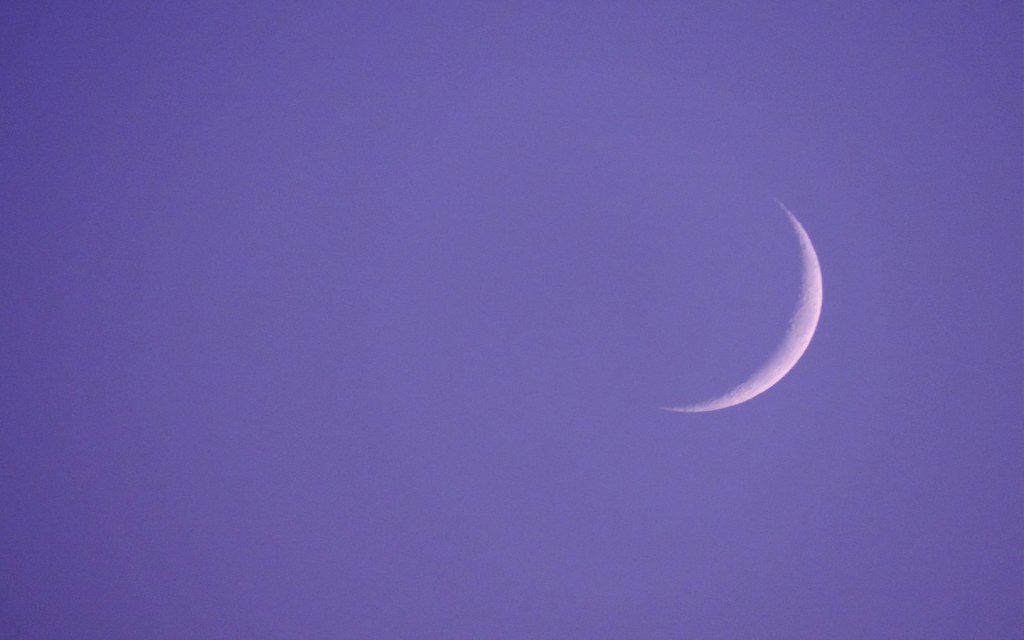
Zakat not only helps us purify our monetary assets but is also a means of helping the poor and needy in society as a whole. Use the methods explained above to calculate your Zakat for 2023 and find its rightful owner within your community.
While you are making the calculations, an important fact to remember is that Pakistan is among some of the Muslim countries where Zakat is obligatory and collected by the state on savings and profit and loss sharing accounts. This practice is called deduction of Zakat at source and is performed by all banks across the country on the 1st of Ramadan.
Therefore, if you are not exempt from Zakat and have more than the Nisab (based on the rate of silver) calculated by the State Bank of Pakistan for a particular year, the amount of Zakat will be deducted at 2.5% of your account balance. The collected Zakat is then sent to the Bait-ul-Maal run by the Government of Pakistan to help the needy and the poor. You do not need to calculate and pay your Zakat on your savings account under such circumstances.
FAQs on Zakat
Here’s a brief overview of the post, focusing on some of the most important questions that people ask in relation to Zakat, its calculation, and its eligibility:
Am I Eligible to Pay Zakat?
Only if you are Sahib-e-Nisab.
How Do I Know if I Am Sahib-e-Nisab?
If you have 7.5 tola/3 ounces/87.48 grams of gold or 52.5 tola/21 ounces/612.36 grams of silver or its cash equivalent for a full lunar year, then you are considered Sahib-e-Nisab and should pay Zakat.
Is It Necessary to Have the Current Rate of Gold or Silver in Your Local Currency?
Yes, since most of your assets will be in your local currency, you must convert all your assets into the same currency for ease of calculation. This means that for Zakat calculation in Pakistan, you must convert all assets into Pakistani Rupees (PKR).
How Do I Calculate the Rate of Gold or Silver in Pakistan on Any Particular Day?
You can easily search for the current rate of gold or silver in Pakistan online.
Which Nisab Should I Choose?
- Gold – If you only have assets and savings in gold.
- Silver – If you have savings and assets in silver or mixed assets, including cash, gold, silver, and other tradable commodities.
Is Zakat Applicable on Future Assets?
Yes, but only if:
- You have bought an asset as an investment with the intention to sell it eventually
- You have definite confirmation about the sale of an asset but do not have the money in hand yet
Is Zakat to be Paid on Personal Use Items?
No, Zakat is to be paid on all assets in excess of your personal use items. This implies that if you own two homes or two cars and use only one of them on a daily basis, then Zakat is only applicable to the one not in use.
I Have Some Savings Set Aside for Hajj. Do I Have to Include Them in My Assets?
Yes, all savings, even those set aside for religious pilgrimages, must be included in your total assets.
Are Future Liabilities Excluded From Zakat?
No, only pending liabilities, such as bills, and other expenses that have to be paid but haven’t been paid yet, are to be excluded from Zakat. This means that you cannot exclude next month’s rent from your net worth, even if you are calculating your Zakat during the last days of the month.
Can I Pay More Than 2.5% of My Net Worth for Zakat?
Yes, 2.5% is the minimum amount of Zakat that every Sahib-e-Nisab Muslim must pay. However, there is no maximum threshold.
Can Zakat Be Paid in Instalments?
Yes, you can choose to pay Zakat in instalments throughout the year. However, you must pay it completely before a new lunar year begins.
Can Zakat Be Given to Only One Recipient?
Yes, if you know of someone who is in need of the amount in full, you can choose to give it to only one recipient.
Can I Give Zakat to My Family and Relatives?
It is considered Afzal or more rewarding to give Zakat to your closest relatives and neighbours. However, you cannot give Zakat to your directly dependent relatives or to those whom you are obliged to spend on, such as:
- Wife
- Children
- Grandchildren
- Parents
- Grandparents
Can I Give Zakat to Non-Dependent Family Members?
Yes, it is considered ideal to do so. Non-dependent family members can include:
- Brother
- Sister
- Brother’s son or daughter (Bhatija or Bhatiji)
- Sister’s son or daughter (Bhaanja or Bhaanji)
- Paternal aunt or uncle (Chacha or Phuphoo)
- Maternal aunt or uncle (Mamu or Khala)
- Mother-in-law or father-in-law (Saas or Susar)
- Son-in-law or daughter-in-law (Damad or Bahu)
Can a Wife Give Zakat to a Needy Husband?
Yes, she can, but only if the husband falls under one of the 8 categories. In addition to that, the money given for Zakat cannot be used by the husband to sustain the household or be spent on expenses for his wife. He can use the Zakat money to pay off his debts and cover his personal expenses.
My Wife is Sahib-e-Nisab but I’m not. Do I Have to Pay Zakat on Her Assets?
No, each Muslim is responsible for paying Zakat on their own assets. It is not obligatory for the husband to give Zakat on his wife’s assets, though he may choose to do so if he pleases. The wife must calculate her own Zakat and pay it out of her net worth for the year.
Is Zakat Applicable on Assets Owned by Children or Minors?
No, Zakat is not applicable to minors and neither is their guardian responsible for paying Zakat on their assets even if they are Sahib-e-Nisab. Zakat is applicable to every Muslim after puberty, with one lunar year being completed a year after a child reaches puberty if they are already Sahib-e-Nisab. However, different sects have different views on this matter and it is best to consult an Aalim-e-Deen for further clarification.
Is Zakat Applicable to the Wealth of a Mentally Ill or Unstable Person?
No, Zakat is not applicable to any wealth owned by mentally unstable individuals, as they are unable to take responsibility for their wealth and distribute it accordingly. However, as always, it is best to consult a religious scholar, based on your personal circumstances.
I Want to Calculate and Distribute the Zakat on My Savings Account on My Own. Is There a Way to Communicate This to My Bank?
Many Muslims prefer to distribute their Zakat to the needy whom they know personally. If that is the case, you can submit a Zakat Declaration Form to the branch where you have your savings account, before the 15th of Sha’ban.
We hope this blog has been an insightful read. For more blogs on trending topics, head to Zameen Blog, the best property and lifestyle blog in Pakistan. You can also reach us for all your queries at blog@zameen.com.



